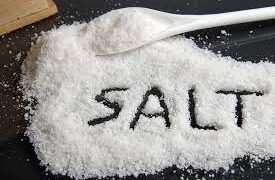Before we talk about natural remedies, let us tell you that fatty liver is caused due to the excessive fat build up in the liver. There are basically two types of it – alcoholic and non-alcoholic. Alcoholic fatty liver is caused due to the heavy consumption of alcohol while non-alcoholic is due to other health issues i.e. high blood pressure, high cholesterol, obesity, type-2 diabetes, etc. If you do not want any drug-based treatment, then naturopathy is the best option available. You can consult with Jindal Naturopathy, the best option that will help you make some necessary lifestyle and dietary changes to get some relief.
Also Read – Dry Needling Therapy: Reasons and Benefits
Keep on reading this post to know more about the natural remedies suggested by the country’s best naturopaths like Jindal Naturecure:
-
Loss some weight
As mentioned earlier that obesity is one of the leading reasons for fatty livers. A study was also done by the American Association for the Study of Liver Diseases in 2017 where researchers found that losing weight can improve the symptoms and progression of fatty livers. Therefore, it is important for you to maintain the right weight or simply lose some extra kilos to see the improvement. However, you should connect with a good dietician to prepare a diet chart to meet your weight-loss objectives.
-
Go for the Mediterranean diet
You will be amazed to know that the Mediterranean diet can greatly help you reduce fatty liver even without losing weight. This diet can also help you make other help conditions better i.e. high blood pressure, high cholesterol, etc. Now, the question is what to eat? Check out the following suggested by Jindal Hospital Bangalore:
Fruits and veggies
- Berries
- Oranges
- Apples
- Melons
- Bananas
- Figs
- Cucumbers
- Dates
- Sweet Potatoes
- Leafy Greens
- Eggplant
- Peppers
- Broccoli
- Tomatoes
- Carrots
- Squash
Legumes
- Lentils
- Chickpeas
- Pulses
- Beans
- Peas
Healthy fats
- Avocados
- Nuts
- Seeds
- Olives
- Olive oil
Lean meats and fish
- Eggs
- Turkey
- Skinless chicken
Whole grains
- Whole-Wheat Pasta
- Whole-Wheat Bread
- Whole Oats
- Brown Rice
- Quinoa
- Couscous
-
Get physically active
Fatty liver is typically associated with an inactive and sedentary lifestyle. So, it is good to take out some time i.e. 150 minutes per week to do exercise, yoga, meditation, etc. It means you will have to do exercise for up to 30 minutes and 5 days a week. In case you are unable to take out this much time, you can break it down into 15-15 minutes. You can walk for 15 minutes and work out for 15 minutes daily. You can also consult your naturopath at Jindal Naturopathy Bangalore to suggest you the best-suited yoga postures for the issue.
-
Avoid food items having added sugars
Dietary sugars like sucrose and fructose are linked to fatty liver problems. Some of the major culprits for such sugars include cakes, doughnuts, cookies, pies, pastries, ice creams, candies, soft drinks, energy drinks, sports drinks, sugar cereals, flavored yogurt, etc. So, try to avoid these items as much as you can to reduce the fat in the liver.
-
Target the higher level of cholesterol
When you have fatty livers, it will make things difficult for your body to manage your cholesterol level. So, ask your naturopath at Jindal Naturecure to suggest you the best ways to manage the same. Besides, you must limit the consumption of trans and saturated fats found in crackers, fried foods, processed baked items, full-fat dairy items, and red meats.
-
Get omega-3 supplements
Not all fats are harmful to our bodies. And omega-3 fatty acids such as seeds & nuts and oily fishes are really good and beneficial for the health of your heart. Many studies suggest that omega-3 may help you improve cholesterol as well as liver fat. But yes, you should add the daily dose after consulting your physician.
Final takeaways
Dietary and lifestyle changes are the best yet most effective solutions available to treat fatty livers. Apart from this, naturopaths such as Jindal Naturopathy Bangalore suggests some more solutions i.e. losing some weight, being active physically, eating a balanced and nutritionally-rich diet, and reducing sugar intake to improve the associated symptoms. However, consult your physician or naturopath first to have personalized solutions.







































































